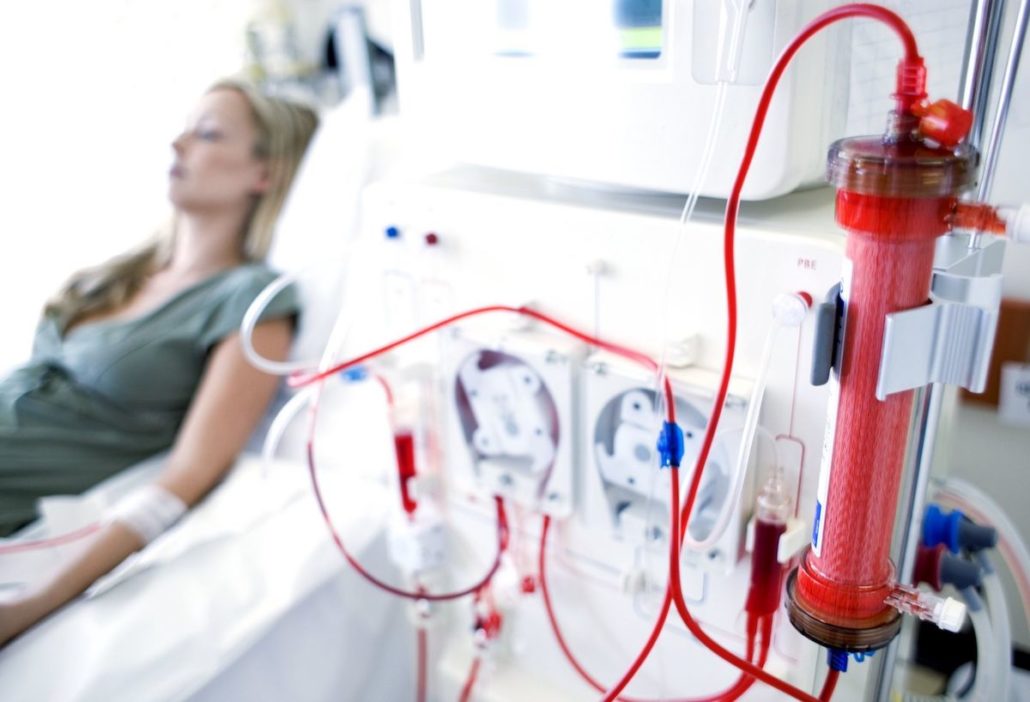What is Alcoholic Cirrhosis?
Alcoholic cirrhosis happens after years of drinking too much alcohol and is an advanced form of alcohol-induced liver disease. Thirty percent of individuals who drink at least eight to sixteen ounces of hard liquor daily or the equivalent for fifteen or more years will develop cirrhosis. If a person has alcoholic cirrhosis symptoms, likely, the liver has not been functioning well for a long time.
If You Have Alcohol-Induced Liver Disease, You May Have Had:
- Fatty Liver Disease (steatosis): A condition caused by abnormal levels of fat in the liver.
- Alcoholic Hepatitis: A condition caused by continued alcohol use that results in long-term (chronic) inflammation in the liver.
- Alcoholic Cirrhosis: An advanced stage of alcoholic liver disease that causes the liver to become stiff, swollen, and barely able to do its job.
There are still no FDA-approved pharmacological or nutritional therapies for treating individuals with alcoholic liver disease. that is why discontinuance of drinking (avoidance) is a crucial part of therapy. Liver transplantation remains the life-saving strategy for patients with end-stage alcoholic liver disease [1].


Get Your Life Back
Find Hope & Recovery. Get Safe Comfortable Detox, Addiction Rehab & Mental Health Dual Diagnosis High-Quality Care at the We Level Up Treatment Centers Network.
Hotline (877) 378-4154Symptoms of Liver Cirrhosis from Alcohol
Each time your liver is injured — whether by disease, excessive alcohol consumption, or another cause — it tries to repair itself. In the process, scar tissue forms. As cirrhosis progresses, more and more scar tissue forms, making it difficult for the liver to function (decompensated cirrhosis). Advanced cirrhosis is life-threatening.
Continued liver damage due to alcohol consumption can lead to the formation of scar tissue, which begins to replace healthy liver tissue. This is referred to as fibrosis. When extensive fibrosis has occurred, alcoholic cirrhosis develops.
Alcoholic cirrhosis symptoms are similar to those of alcoholic hepatitis. The symptoms depend on the stage of the disease. In the outset stages, you may not have any symptoms. If you do have alcoholic cirrhosis symptoms, some are general and could easily be mistaken for signs of many other illnesses [2].
Early symptoms and signs of cirrhosis include:
- Nausea
- Loss of appetite
- Feeling weak or tired
- Fever
- Unexpected weight loss
As liver function gets worse, other more commonly recognized alcoholic cirrhosis symptoms appear including:
- Itchy skin
- Easy bruising and bleeding
- Yellow tint to your skin or the whites of your eyes (jaundice)
- Swelling (edema) in your legs, feet, and ankles
- Fluid buildup in your belly/abdomen (ascites)
- Brownish or orange color to your urine
- Light-colored stools
- Blood in your stool
- Confusion, difficulty thinking, memory loss, personality changes.
- Redness in the palms of your hands.
- Spider-like blood vessels that surround small, red spots on your skin (telangiectasias)
- In women: premature menopause (no longer having your menstrual period)
- In men: loss of sex drive, enlarged breasts (gynecomastia), shrunken testicles.
Additionally, alcoholic cirrhosis can lead to a variety of serious health complications, such as:
- Portal hypertension (high blood pressure of the liver)
- Kidney failure
- Bleeding from veins in the upper digestive tract (varices)
- Hepatic encephalopathy (brain damage due to increased toxin levels in the blood)
- Increased risk of infection
- Liver cancer
Alcoholic cirrhosis can’t be reversed. Its treatment focuses on minimizing additional liver damage while addressing any complications that arise. from alcoholic cirrhosis symptoms. In advanced cases, a liver transplant may be necessary.
Is Cirrhosis Cancer?
No, alcoholic cirrhosis isn’t cancer. However, most individuals who have liver cancer have alcoholic cirrhosis. If you have cirrhosis, you have an increased risk of liver cancer. If you have hepatitis B or hepatitis C, you have an increased risk of liver cancer because these diseases often lead to cirrhosis. Any cause of liver disease can lead to cirrhosis, which increases your chance of liver cancer. (Even if you have hepatitis B or fatty liver disease without cirrhosis, you are at increased risk of liver cancer.)

Can Alcoholic Cirrhosis Be Reversed?
Typically no. If someone has been diagnosed they have alcohol cirrhosis, you have late-stage alcoholic liver disease and the damage that is already done is permanent. There are many alcoholic liver diseases and complications of liver diseases that can lead to cirrhosis. If your liver disease or complication is caught early and successfully managed, it may be possible to slow or stop the progression of the disease.
Is Cirrhosis Deadly?
Having a diagnosis of alcoholic cirrhosis doesn’t mean you have an immediately deadly condition. However, as alcoholic cirrhosis continues, more scarring happens, and liver function continues to decline. Eventually, your failing liver may become a life-threatening condition. Yet there’s still hope. You and your medical team will discuss if you are a candidate for a liver transplant. If so, you will start the process of being placed on a national liver transplant recipient list.
Alcoholic Hepatitis and Alcoholic Cirrhosis Similarities and Differences
Alcoholic hepatitis and alcoholic cirrhosis are both diseases that affect the liver. Since hepatitis and cirrhosis are in many ways on a continuum of disease, the symptoms may be very similar. However, there are a number of important differences between the two.
In general, alcoholic hepatitis may or may not be reversible (curable), whereas alcoholic cirrhosis refers to permanent scarring of the liver, often as the result of chronic hepatitis. While some forms of hepatitis may come on very rapidly, cirrhosis also tends to develop more gradually. In some cases, treatment can reverse the damage, while more severe cases of alcoholic hepatitis can lead to liver failure [3].
Get Help. Get Better. Get Your Life Back.
Searching for Accredited Drug & Alcohol Rehab Centers Near You? Or Mental Health Support?
Even if you have failed previously, relapsed, or are in a difficult crisis, we stand ready to support you. Our trusted behavioral health specialists will not give up on you. Call us when you feel ready or want someone to speak to about therapy alternatives to change your life. Even if we cannot assist you, we will lead you wherever you can get support. There is no obligation. Call our hotline today.
FREE Addiction Hotline – Call 24/7What Causes Alcoholic Cirrhosis?
Cirrhosis of the liver can occur due to a variety of causes. However, alcoholic liver cirrhosis is directly related to alcohol intake. Alcoholic liver disease is caused by the heavy use of alcohol. The liver’s job is to break down alcohol. If you drink more than it can process, it can become badly damaged. Fatty liver can happen in anyone who drinks a lot. Alcoholic hepatitis and alcoholic cirrhosis are linked to the long-term alcohol abuse seen in alcoholics. Healthcare providers don’t know why some people who drink alcohol get the liver disease while others do not. Research suggests there may be a genetic link, but this is not yet clear.
What Causes Cirrhosis?
Cirrhosis has different causes. Some people with cirrhosis have more than one cause of liver damage.
Most Common Causes
The most common causes of cirrhosis are:
- Alcoholic liver disease—damage to the liver and its function due to alcohol abuse
- Nonalcoholic fatty liver disease
- Chronic hepatitis C
- Chronic hepatitis B
Less Common Causes
Some of the less common causes of cirrhosis include:
- Autoimmune hepatitis
- Diseases that damage, destroy, or block bile ducts, such as primary biliary cholangitis and primary sclerosing cholangitis
- Inherited liver diseases—diseases passed from parents to children through genes—that affect how the liver works, such as Wilson disease, hemochromatosis, and alpha-1-antitrypsin deficiency
- Long-term use of certain medicines
- Chronic heart failure with liver congestion is a condition in which blood flow out of the liver is slowed.
Alcoholic Cirrhosis Treatment
The goal of alcoholic cirrhosis treatment is to restore some or all normal functioning of the liver. Abstinence from alcohol can have a great effect on survival even in patients with decompensated cirrhosis. However, if you have alcohol-related cirrhosis or alcoholic hepatitis and do not stop drinking, no medical or surgical treatment can prevent liver failure.
The first step in treatment is to help the individual stop drinking. This may involve an alcohol treatment program. Sometimes diet changes are advised, too. The liver is often able to fix some of the damage caused by alcohol so you can live a normal life. The scarring from cirrhosis is sometimes partially reversible, and when liver tissue loss is severe enough to cause liver failure, most of the damage may be permanent. However, the damage won’t have any chance of reversing if you continue to drink alcohol.
In some cases, a liver transplant may be considered. Alcoholic cirrhosis is a leading indicator of orthotopic liver transplant (OLT) in North America. However, the person must complete a rehab program and go through alcoholism treatment before this is even an option.

Treatment Goals for Alcoholic Cirrhosis Symptoms
- Treating the complications of cirrhosis
- Preventing further damage to the liver
- Preventing liver cancer or detecting it early
- Liver transplantation
Comfortable Facilities & Amenities
High-Quality Addiction & Mental Health Rehabilitation Treatment
Rehab Centers TourRenowned Addiction Centers. Serene Private Facilities. Inpatient rehab programs vary.
Addiction Helpline (877) 378-4154Proven recovery success experience, backed by a Team w/ History of:
15+
Years of Unified Experience
100s
5-Star Reviews Across Our Centers
10K
Recovery Success Stories Across Our Network
- Low Patient to Therapist Ratio
- Onsite Medical Detox Center
- Comprehensive Dual-Diagnosis Treatment
- Complimentary Family & Alumni Programs
- Coaching, Recovery & Personal Development Events
Other Treatments a Doctor May Use
Medications: Other medications doctors may prescribe include corticosteroids, calcium channel blockers, insulin, antioxidant supplements, and S-adenosyl-L-methionine (SAMe).
Nutritional Counseling: Alcohol abuse can lead to malnutrition. That is why the role of nutritionists is crucial in treatment.
Extra Protein: Clients in treatment often require extra protein in certain forms to help reduce the likelihood of developing brain diseases such as encephalopathy.
Liver Transplant: Take note that a person often must be sober for at least six months before they are considered a candidate for a liver transplant.
Alcohol abuse is one of the primary causes of liver damage. Unfortunately, alcohol-associated liver disease is the main cause of chronic liver diseases that are life-threatening or permanent. Abstaining from alcohol is the only chance a person has of recovery.
Alcoholism Treatment for People with Alcoholic Cirrhosis Symptoms
Chronic alcohol use will result in a progression from steatosis to alcoholic hepatitis and then finally to alcoholic cirrhosis. Consequently, the complications associated with the alcohol-related disease can be severe. To emphasize, significant alcoholic cirrhosis can increase the risk for liver cancer, other cancers, kidney failure, and dementia.
For an individual with alcohol use disorder, maintaining abstinence from alcohol requires treatment for alcohol use disorder in addition to treatments for alcohol-related liver disease. Thus, the treatment for alcohol-related liver disease and treatment for an alcohol use disorder go hand in hand.
Medically Assisted Detox
Usually, the first step in inpatient treatment is medically assisted detox. Doctors and addiction specialists monitor clients’ vital signs while alcohol exit the system. Depending on the type of substance a person is detoxing from, withdrawal symptoms may differ.
Cravings are very common during detox and can be challenging to overcome. This often leads to relapse. Constant medical care provided during inpatient treatment helps prevent relapse. Clinicians can provide necessary medication and medical expertise to lessen cravings and withdrawals.
Medication-Assisted Treatments
Medication-Assisted Treatments (MAT) for alcohol use disorder and liver disease are commonly used in conjunction with one another. This includes the use of medications and other medical procedures. Typically, individuals undergoing withdrawal management are administered benzodiazepines under the supervision of an addiction medicine physician, whereas steroids are often used to deal with inflammation of the liver that is associated with alcoholic-related liver disease.
Because individuals who have the alcohol-related liver disease often suffer from nutritional deficiencies, physicians may consult with nutritionists and recommend a specific diet. In addition, nutrition therapy, including the use of supplementation and special diets, is often used in the treatment of alcohol-related liver disease.
Integrated Mental Health Care
Alcohol affects mental health, so people may use it to self-medicate undiagnosed disorders. Rehab centers typically provide mental health screenings, diagnoses, and integrated treatment for co-occurring disorders. In addition, holistic and therapeutic approaches are often used to treat recovering addicts with these conditions.
World-class, Accredited, 5-Star Reviewed, Effective Addiction & Mental Health Programs. Complete Behavioral Health Inpatient Rehab, Detox plus Co-occuring Disorders Therapy.
CALL (877) 378-4154End the Addiction Pain. End the Emotional Rollercoaster. Get Your Life Back. Start Drug, Alcohol & Dual Diagnosis Mental Health Treatment Now. Get Free No-obligation Guidance by Substance Abuse Specialists Who Understand Addiction & Mental Health Recovery & Know How to Help.
Behavioral Therapies, Dual Diagnosis Programs in New Jersey
Cognitive Behavioral Therapy (CBT) and Dialectical Behavioral Therapy (DBT) can improve addicts’ behavior. CBT targets negative and maladaptive thought patterns as it promotes positive emotions and beliefs, while DBT helps clients address conflicting impulses so they can make healthy choices. Both therapies treat substance abuse and mental health disorders. Therapy also empowers clients to identify, avoid and mitigate cues that trigger drug cravings.
Individual and Group Counseling
Addiction and mental health counseling occur in both individual and group settings. One-on-one treatment sessions may address unresolved trauma, unconscious conflicts, and specific struggles, while group sessions often involve training in life skills, stress management, conflict resolution, and social connections. Group counseling also gives clients the chance to share their thoughts and experiences to develop social support, which is essential for lasting recovery.
Find the Treatment Plan at We Level Up Inpatient Rehab New Jersey
During your rehabilitation, the staff from We Level Up NJ treatment facility will help you identify what caused your addiction and teach you skills that will help you change your behavior patterns and challenge the negative thoughts that led to your alcoholism. Sometimes, the pressures and problems in your life lead you to rely on alcohol to help you forget about them momentarily.
Please, do not try to detox on your own because the alcohol detox process can be painful and difficult without medical assistance. It’s hard enough that you are struggling with alcoholic cirrhosis. If you or someone you know is experiencing some early signs of liver disease like alcoholic cirrhosis symptoms, it is important to intervene early.

Experience Transformative Recovery at the We Level Up Treatment Center.
See our authentic success stories. Get inspired. Get the help you deserve.



Start a New Life
Begin with a free call to an addiction & behavioral health treatment advisor. Learn more about our dual-diagnosis programs. The We Level Up treatment center network delivers various recovery programs at each treatment facility. Call to learn more.
- Personalized Care
- Caring Accountable Staff
- Comfortable Amenities
- Licensed & Accredited
- Renowned w/ 5-Star Reviews